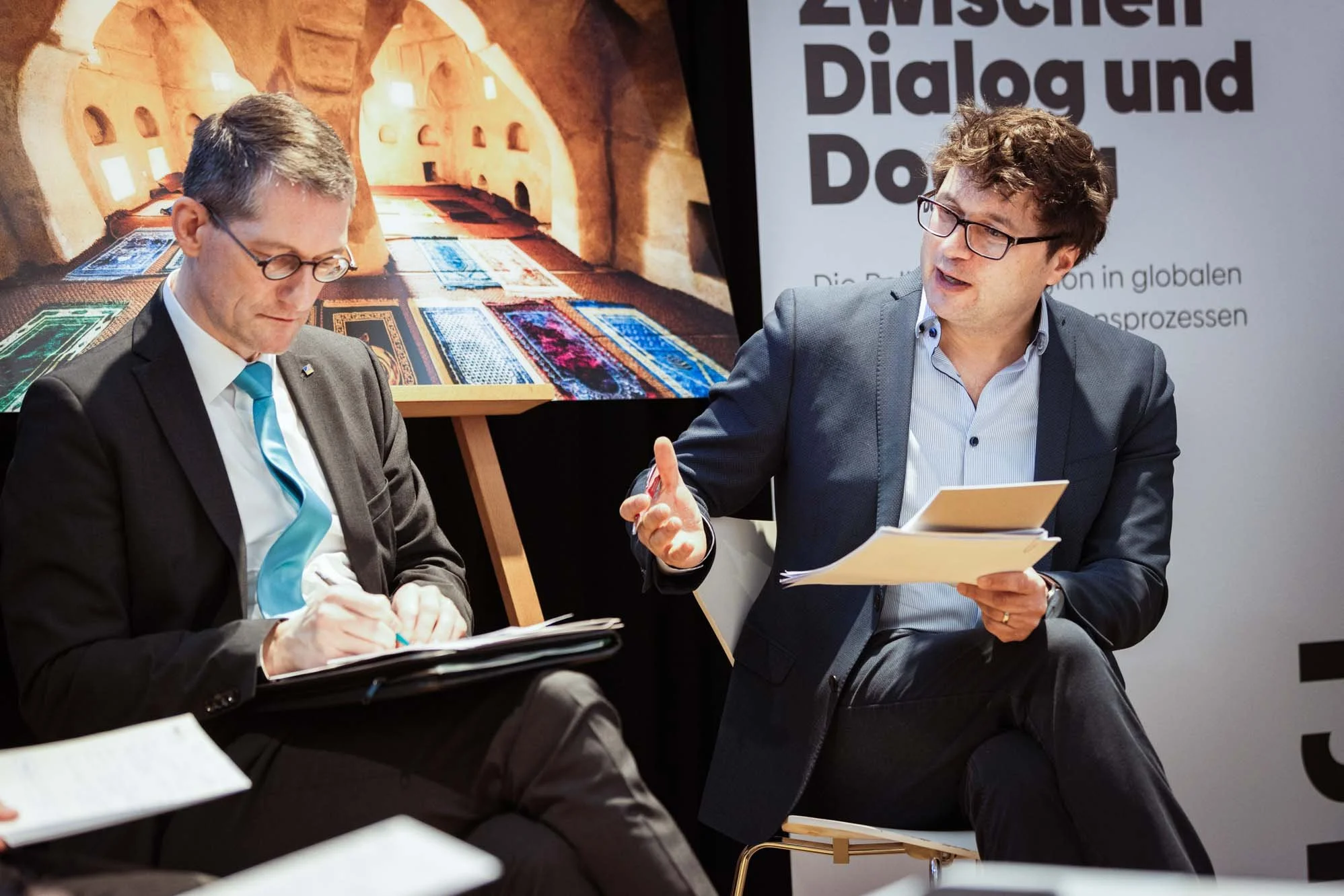Between Dialogue and Dogma - The Role of Religion in Global Conflicts and Peace Processes
Overview: Religion and politics in the 21st century
Religion has long been a neglected category of politics - both in terms of domestic and foreign policy. At the latest since October 7, 2023 and the subsequent war in Gaza and far beyond, the political relevance of religious ideas, ways of thinking and their practice has once again moved more strongly into the public consciousness. This social, political and scientific awareness is by no means new: the Islamic Revolution in Iran in 1979, the attacks of 11 September 2001 and the terrorist attacks in Europe in 2015/2016 repeatedly highlighted the importance of instrumentalizing religion. In the 21st century - the age of globalization - religion seems to play a role as a political factor that should not be underestimated.
The religious field in Germany and Europe is increasingly perceived as conflict-prone, overly complex and confusing. The peace-building potential of religion is often overlooked. Violent and armed conflicts are usually triggered by political power struggles. It is often about access to economic resources coupled with unstable statehood and a lack of good governance. Particularly in religiously fragmented societies, interreligious dialogue can act as a stabilizing factor and make a decisive contribution to reducing religiously motivated tensions and leading to greater stability in the affected regions and societies.
The conference builds on this stocktaking and attempts to look at religion as a political factor in the 21st century from an interdisciplinary perspective and to explore the interplay and possible implications between religion and politics. The regional focus on the Near and Middle East is intended to contribute to an understanding of the role of religion in political processes and to show ways towards regional cooperation. After all, it was US President Donald Trump, who has now been re-elected, who initiated the Abraham Accords Declaration as a diplomatic rapprochement between Israel, the United Arab Emirates and Bahrain. Nevertheless, under Donald Trump's first term in office, the USA increasingly withdrew from the Middle East region and left the societies living there to their fate. His re-election is of crucial importance for the future development of the regional order and (in)stability of the Middle East.
Event-Report:
The conference was held under the patronage of former Minister President Armin Laschet MdB, Chairman of the Abraham Accords Institute, and brought together high-ranking guests from politics, academia and religious communities. Guests included Prof. Dr. Dr. h. c. Heiner Bielefeldt (former UN Special Rapporteur on Freedom of Religion or Belief), Katja Weitzel MdL (Spokesperson for Religious Policy of the SPD Parliamentary Group in the Bavarian State Parliament), Dr. Matthias Kopp (Spokesperson of the German Bishops' Conference) and Abdassamad El Yazidi (Chairman of the Central Council of Muslims in Germany).
The conference pursues the following goals:
Analyze the role of religion in regional conflicts in the Middle East and highlight what causes the conflicts, what contribution religion has made so far and to what extent religious guiding principles are instrumentalized by political conflict actors for their own power purposes.
Gain an understanding of religion as a contributing social factor,
to understand faith as a socio-political force that can be beneficial for the cohesion of communities.
To examine the significance of religion in political conflicts and peace processes, in particular using the example of the current flare-up of war in Gaza.
Identify global trend lines of how certain religious beliefs influence political processes and, conversely, how political decisions influence religion.
To bring the debate on religious policy, enriched with new approaches, to the general public, society and academia in order to facilitate the transfer of theory and practice and to develop innovative strategies for overcoming current challenges - nationally, regionally and globally.
Topics
Religion and politics in the 21st century: A global overview
The importance of religion in peace processes
Religion and state identity: theocracies and religious justifications in political action
Interreligious dialog: Religion as a stabilizer in politics





























